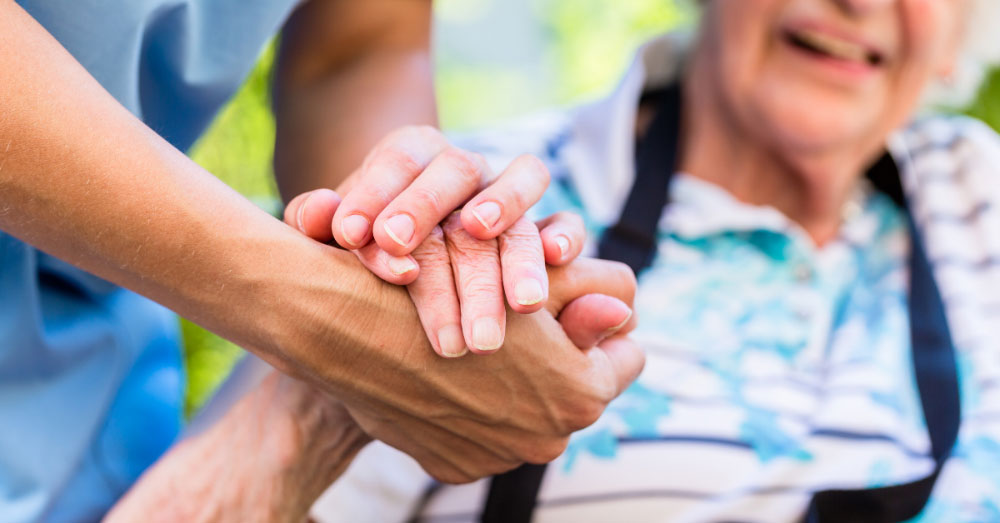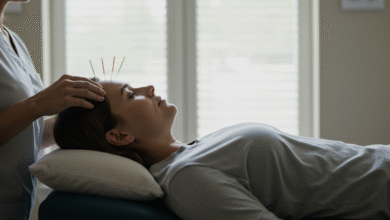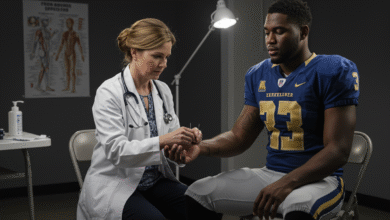Caregiver’s Checklist: Daily Tasks to Keep Your Loved One Safe
Caregiver’s Checklist: Daily Tasks to Keep Your Loved One Safe

Caring for a loved one requires more than just compassion—it demands consistency, structure, and attention to detail. Whether you’re tending to an elderly parent or supporting someone with chronic illness, staying organized with a daily routine is essential. If you’re a care giver in Dubai(مقدم الرعاية في دبي), managing these tasks within a fast-paced city environment means balancing time, safety, and emotional support efficiently. A well-crafted checklist ensures nothing important slips through the cracks and keeps your loved one’s health and comfort at the forefront every single day.
The Importance of a Daily Caregiving Routine:
Consistency creates a sense of security for those receiving care. Daily tasks not only keep your loved one safe but also help identify early warning signs of potential health issues.
Benefits of Having a Daily Care Plan:
-
Promotes physical and emotional well-being
-
Enhances hygiene and reduces the risk of infections
-
Helps caregivers manage their time and reduce stress
-
Supports medication adherence and treatment schedules
-
Encourages independence in daily activities where possible
Morning Care Checklist:
Starting the day right sets the tone for everything that follows. Mornings should focus on hygiene, nutrition, and medications, while also gently waking up the body and mind.
Tasks to Start the Day:
-
Assist with getting out of bed safely
-
Help with personal hygiene (brushing, bathing, grooming)
-
Inspect for skin issues, bruises, or pressure sores
-
Prepare a healthy breakfast with any dietary restrictions in mind
-
Administer morning medications as prescribed
-
Encourage light stretching or gentle mobility exercises
Medication and Health Monitoring:
Daily medication management and monitoring are critical, especially for older adults or those with chronic illnesses. Mistakes in dosages or missed pills can have serious consequences.
How to Stay on Top of Medications:
-
Create a pill organizer with morning, afternoon, and evening slots
-
Set digital reminders for each dose
-
Maintain a medication log to track intake and side effects
-
Check for any expired medications weekly
-
Ensure medications are stored properly (room temp or refrigerated)
Key Health Monitoring Tasks:
-
Check blood pressure, sugar levels, or temperature as needed
-
Observe breathing, alertness, or pain indicators
-
Track bowel movements and urinary frequency
-
Note appetite changes or sudden mood shifts
Meal Planning and Nutrition:
Nutrition plays a vital role in keeping your loved one healthy and energized. Balanced meals also support immune function and medication absorption.
Tips for Healthy Daily Nutrition:
-
Plan three nutritious meals with snacks in between
-
Ensure proper hydration with at least 6-8 glasses of water daily
-
Modify texture (soft food, purees) if swallowing is an issue
-
Limit salt and sugar for those with dietary restrictions
-
Monitor food allergies or sensitivities
Meal Prep Tasks:
-
Grocery shop weekly with a pre-planned menu
-
Prepare ingredients in bulk to save time
-
Label meals with dates for safe consumption
-
Sit and eat together to encourage appetite and connection
Hygiene and Grooming Support:
Maintaining good hygiene not only prevents illness but also boosts self-esteem. Tailor assistance based on the person’s mobility and cognitive abilities.
Daily Hygiene Tasks:
-
Assist with bathing or sponge baths
-
Help with oral hygiene (brushing, flossing, denture care)
-
Trim nails and check feet for sores or infections
-
Change into clean, weather-appropriate clothing
-
Apply lotion to prevent dry skin and bed sores
Safety Tips During Hygiene:
-
Use non-slip mats in the bathroom
-
Install grab bars near toilets and showers
-
Ensure the water temperature is comfortable
-
Keep toiletries and towels within reach
Home Safety Checks:
A safe home environment reduces the risk of falls, injuries, or emergencies. Daily checks can prevent accidents and give peace of mind.
Must-Do Daily Safety Checks:
-
Clear walkways of clutter or loose rugs
-
Check that mobility aids are functioning properly
-
Test smoke detectors and alarms weekly
-
Ensure emergency numbers are visible and accessible
-
Verify locks, windows, and lighting are secure
Mental and Emotional Well-Being:
Caring goes beyond physical needs—it involves emotional support, companionship, and cognitive engagement. Loneliness or depression can be as harmful as illness.
Ways to Support Emotional Wellness:
-
Spend time in meaningful conversation or activities
-
Encourage hobbies like puzzles, reading, or gardening
-
Schedule time outdoors for fresh air and sunlight
-
Monitor for signs of depression or anxiety
-
Celebrate small milestones or routines to build joy
Social Engagement Tips:
-
Arrange short visits from friends or family
-
Use video calls for remote connection
-
Join local community groups or senior programs
-
Involve them in daily decisions to foster independence
Evening Care Checklist:
Evenings should focus on winding down, reviewing the day, and preparing for restful sleep. A calm routine promotes better mental and physical recovery.
End-of-Day Tasks:
-
Administer evening medications and log any side effects
-
Prepare a light dinner, avoiding stimulants or heavy foods
-
Assist with changing into sleepwear and nighttime hygiene
-
Reflect on the day and reassure your loved one
-
Create a quiet, dimly lit environment for better sleep
Documentation and Communication:
Daily documentation helps you stay organized and provides valuable information to healthcare providers or other caregivers. Communication ensures continuity of care.
What to Document Each Day:
-
Meals and fluid intake
-
Medication adherence and effects
-
Changes in behavior or mood
-
Physical complaints or injuries
-
Activity level and sleep quality
Communication Tips:
-
Leave notes or updates for family or secondary caregivers
-
Prepare questions or updates for upcoming doctor visits
-
Share concerns with healthcare providers as needed
-
Keep a digital or physical caregiver journal
Planning for Unexpected Situations:
Emergencies or changes in condition can happen without warning. Being prepared ensures you’re ready to act quickly and effectively.
Daily Emergency Prep:
-
Keep emergency contact details updated
-
Review and replenish first aid supplies
-
Know your loved one’s DNR or healthcare directives
-
Have transportation options available for urgent care
-
Store health insurance and ID cards in an accessible place
Self-Care for the Caregiver:
You are the foundation of your loved one’s care. Daily tasks can be demanding, and burnout is a real risk. Prioritizing your own well-being is a necessity, not a luxury.
Daily Habits to Protect Your Health:
-
Set aside 10–15 minutes for mindfulness or deep breathing
-
Stay hydrated and eat well-balanced meals
-
Take short walks or do light stretching
-
Connect with friends or online caregiver groups
-
Recognize signs of fatigue and ask for support
When to Seek Outside Help:
-
If caregiving is impacting your health or work
-
When you feel emotionally drained or isolated
-
For specialized care like physiotherapy or dementia support
-
If you’re unsure how to manage complex medical tasks
-
In such cases, hiring a care giver in Dubai can relieve stress and improve care quality
Conclusion:
Daily caregiving is a delicate blend of routines, responsibility, and love. A detailed checklist ensures nothing important is overlooked and allows your loved one to live with dignity, safety, and comfort. As a care giver in Dubai or anywhere in the world, structure is your ally. It helps you stay grounded while navigating the often emotional and exhausting path of caregiving. With a thoughtful daily plan in place, you not only protect your loved one—but also preserve your own well-being in the process.




